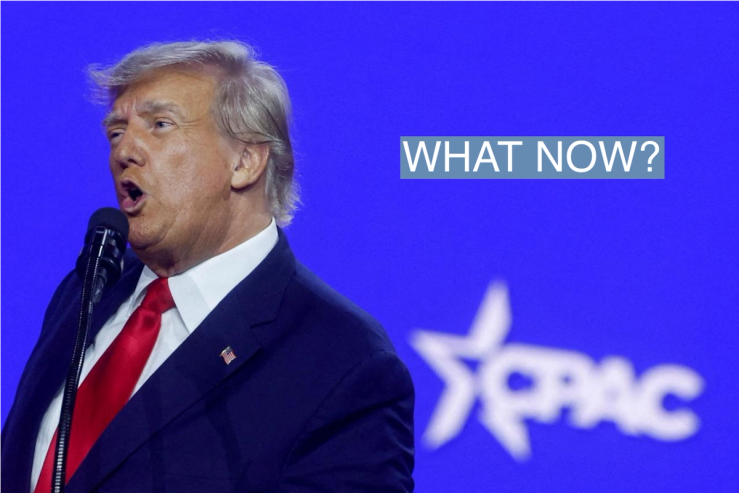The News
Donald Trump has been indicted.
The case — related to Trump’s alleged role in giving “hush money” to adult film actress Stormy Daniels before the 2016 election — could take a few different paths over the next several months or years, as it makes its way through a New York court.
Here’s what legal experts see as plausible outcomes following the historic indictment.
Know More
Delay, delay, delay
Trump’s lawyer Joe Tacopina told NBC News on Friday that the former president will not take a plea deal, and that he doesn’t know if the case could even make it to trial “because we have substantial legal challenges that we have to ... front before we get to that point.”
The New York Times reported that the Trump legal team could file motions to:
- Dispute the statute of limitations
- Change the venue of the trial
- Disqualify evidence
- Recuse the judge assigned to the case
- Disqualify prosecutors
- Keep jurors anonymous
Depending on a judge’s ruling, any of those could lead to the case being dismissed or substantially derailed.
Former federal prosector Glenn Kirschner also predicts Trump’s legal team will “wage a scorched-earth defense.”
Other cases take precedence
Trump is also facing Department of Justice investigations over the Jan. 6 Capitol riot and the top secret documents found at his Florida residence Mar-a-Lago, as well as a criminal inquiry in Georgia.
If he’s charged in those probes, there’s a chance they could go to trial before the New York case, delaying it even further.
“The fact that New York is first to indict does not mean it will be the first to try,” New York University law professor Stephen Gillers told The New York Times.
That’s because the New York state court is more receptive to pretrial appeals, “meaning there will be many opportunities to delay a trial,” depending on how many legal motions Trump’s legal team files, the Times reported.
Prosecutors want to move things along
Prosecutors could file motions to expedite and speed up the case, Jerry H. Goldfeder, a veteran New York-based election lawyer, told Semafor. Then it would go to trial before a jury, just like any other case. (But finding an impartial jury would be its own challenge.)
Trump’s ongoing campaign for president in 2024 “will have absolutely no role in the judge’s decisions on how this case moves along,” Goldfeder said.
The timeline, he said, will depend on the charges and how complicated the evidence is.
While the indictment is still sealed in this case, the arguments could get complicated given that experts believe Manhattan District Attorney Alvin Bragg will attempt to elevate a misdemeanor business records violation to a felony related to campaign finance law.
“People should hold their breath, see what indictment says, and keep in mind that the prosecution will ... not get involved in a circus with Trump, irrespective of what he says,” Goldfeder said.
Trump behind bars?
Even if Trump is convicted, it’s an open question whether he would face a prison sentence. The conviction could be appealed and end up at the U.S. Supreme Court, CNN reported.
“Judges have very broad discretion in whether to sentence a person to prison and for how long,” CNN senior legal analyst Elie Honig said. And historically, powerful officials accused of crimes have found a way to avoid jail time.
There’s also a question of logistics and the Secret Service protection given to a former president.
“Would agents be placed into cells on either side of him? Would they dress as inmates or guards?” CNN asked.


